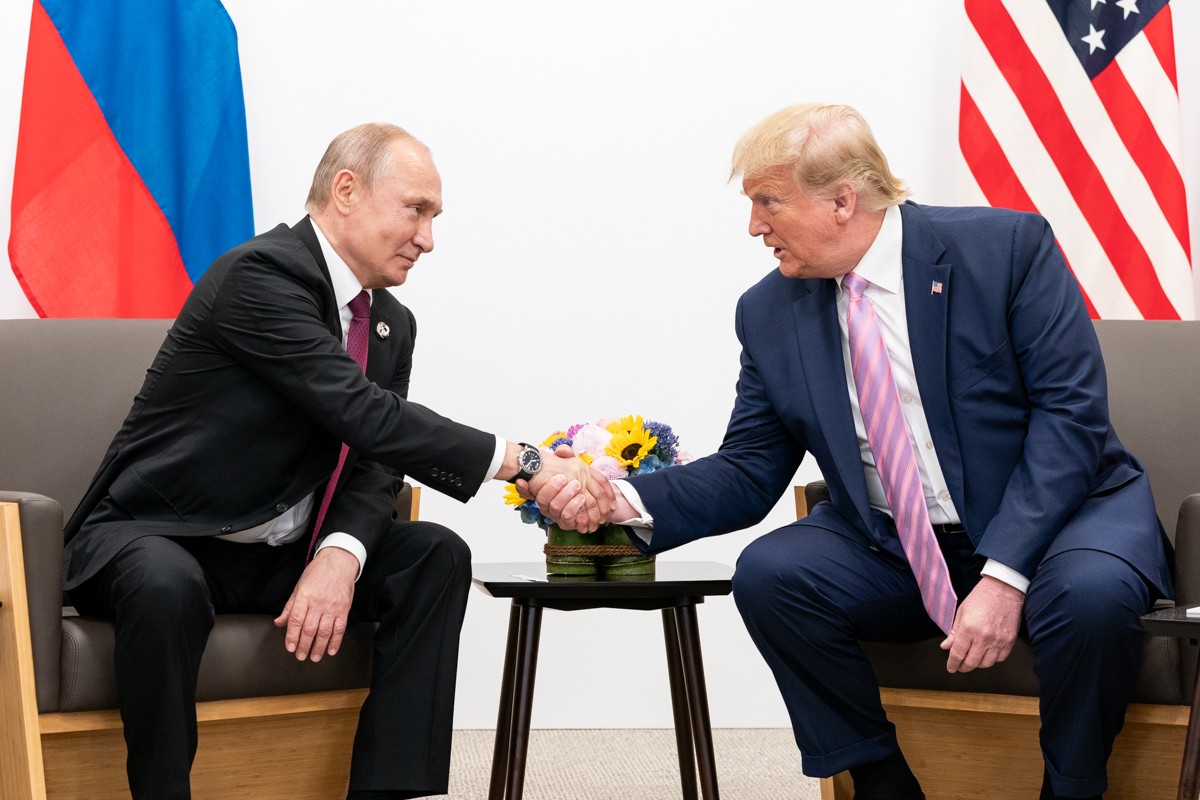 Photo Courtesy of the White House on Flickr
Photo Courtesy of the White House on Flickr
Trump and Putin at the G20: Deference and Lack of Deliverables
President Trump and President Putin met today on the sidelines of the G20 Summit in Osaka, Japan. This one-on-one entailed little concrete discussion. What it does show is the continuation of a pattern that has marked the Trump-Putin relationship since the beginning: a lack of deliverables and a policy of deference.
Lack of Deliverables
This is the first in-person meeting between the two presidents since July 2018, when they met in Helsinki. Despite the rise in tensions over the past twelve months—the situation in Venezuela, risk of cyberwar, increasing domestic repression and disregard for human rights, and the breakdown of the INF Treaty—the meeting achieved little progress. President Trump called the meeting a success, remarking that he and Putin “discussed a lot of things.”
But pressing issues such as regional conflicts in Ukraine and Syria, as well as the threat of a new arms race, were off the table. Instead, Trump left the conversation with an invitation to the 2020 Victory Day Parade in Russia. This is not surprising, as it fits with the precedent set by previous Trump-Putin meetings: little achieved, and much ignored.
Former Ambassador to Russia Michael McFaul reminds us of this consistent lack of deliverables, highlighting that over the past two and a half years no concrete progress has been achieved on sources of U.S.-Russia conflict, despite a succession of Trump-Putin meetings. As McFaul has previously warned, advancement of U.S. national interests should be at the forefront of these one-on-one conversations. But the failure to do so should not come as a surprise, given that a year after Helsinki, the same conciliatory dynamic is playing out again.
Public Deference
As ASP Fellow Matthew Wallin has suggested, Trump continues to display a strategy of “public deference to Putin” in these high-profile private meetings on the sidelines of multinational summits. Instead of asserting American interests and pushing the agenda forward, President Trump aims to project an impression of friendly relations. The top news story from the meeting in Osaka was a one-liner about election interference—Trump jokingly told Putin, “don’t meddle in the [2020] election, please”—but other sources of contention loom large.
This comment is concerning in the context of consensus in the U.S. Intelligence Community that Russian cyber-enabled election interference not only occurred in 2016, but is likely to continue to threaten our democratic processes. It represents an attempt to make light of a serious issue of contention in pursuit of projecting a good relationship between the two presidents.
Trump’s joke that Putin should “get rid of” problematic journalists, and the two men’s smiling commiseration about the problem of “fake news” also reflects the policy of public deference. The deaths of 58 Russian journalists since Putin’s rise to power casts these comments in a sobering light.
President Trump’s policy of public deference to Putin, as evident by the prominence of the election meddling comment, obscures the pressing issues that should be brought up in order to advance U.S. national interests regarding Russia. While Trump aims to show the media his friendly relationship with Putin, the Russian president is clear about continuing to push for his own interests.
Putin’s Motives
In an extended interview with The Financial Times the day before the G20 summit, Putin voiced his views on several issues. His remarks provide a reminder of why such deference without deliverables is dangerous. He declared that “the liberal idea has become obsolete,” and that “traditional values are more stable and more important for millions of people than this liberal idea, which… is really ceasing to exist.”
By affirming the decline of liberalism—which on the international level means a belief in global collaboration, democratic norms, free trade and speech—Putin defends his government’s move to revive prior conceptions of authoritative Russian society and a less pluralistic international order. The Kremlin has previously pushed back on liberal values, asserting in the Ministry of Culture’s “Fundamentals of State Cultural Policy” that “Russia is not Europe.”
The interview made one thing clear: Putin has no intention of obfuscating his intentions. By denigrating liberalism immediately prior to the G20 summit, Putin took a firm stance in defense of his regime. Cloaked in rhetoric of “traditional values” and defense of “the majority,” his remarks underpin policies such as anti-LGBT legislation and stifling free speech.
This clarity of Putin’s motives stands in stark contrast to the lighthearted niceties on display at the Trump-Putin meeting in Osaka. A U.S. response is needed. But it seems likely that Trump will instead continue his policy of public deference, and that the pattern of missing deliverables will continue.





